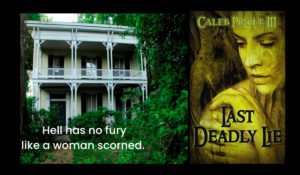Let me begin by saying, Christmas means different things to different people. So, I suppose, I should have titled this post: The Meaning of Christmas to Me. And you, my dear reader, are completely free to agree or disagree with my thoughts.
At base, Christmas is a Christian holy day that celebrates the birth of the Christ; the one who came to take away the sins of the world.
However, in this largely post-Christian era, Christmas has essentially become a secular holiday devoted to exchanging gifts and having a feast with family and friends.
For myself, even though I no longer believe there was a historical Jesus, I try to steer a middle way between the religious and the secular.
Now you may ask, how the heck can I do that? Isn’t it one or the other? Especially if I don’t even believe there was a Jesus?
For me, the answer is simple. The Christmas story expresses a hope. A hope that humanity can transcend its desire for self-destruction. That we humans can, in fact, become a species that values the other above self. That we can learn to practice the Golden Rule in our thoughts and in our actions. That we can learn to value peace over war, love over hate, freedom over slavery.
Stoicism is my life philosophy of choice. In particular, the Stoicism espoused by Lucius Annaeus Seneca.
Seneca’s Stoicism was pragmatic, not dogmatic. And that put him at odds with Stoics in his own day, and it puts him at odds with many of the Neo-Stoics of today.
For me, Seneca is a philosopher for the 21st century. Even though he lived two millennia ago, he could have just as easily lived today.
“All truth is mine,” he wrote to his friend Lucilius. Seneca was not a dogmatician. His Stoicism fit the practical needs of the Romans of his day, and it fits the needs of those of us who live in the first world of today. The times haven’t changed all that much.
With Seneca, I say, ALL TRUTH IS MINE. I basically follow the Stoic way, but deviate where I need to do so in order to follow the truth (more accurately, what is truth for me).
As a result, I can rejoice in the hope of the Christmas season without being a Christian, or believing that Jesus existed.
Because the truth is — everyone hopes the meaning of Christmas becomes a reality. That weapons of war are turned into tools of peace. That we all turn the other cheek, rather than get offended and strike back. That we forgive others, as we ourselves wish to be forgiven. And that we do to others, as we want them to do to us.
Christmas is our wish to transcend ourselves and become Human 2.0. And who, at heart, doesn’t want to become a better person? Merry Christmas!
Comments are always welcome. And until next time, happy living!
Share This!